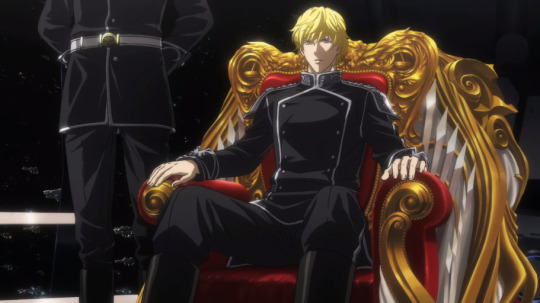#not even joking I printed out this exact illustration and pasted it to the back inside cover of my middle school DIARY
Explore tagged Tumblr posts
Text
I finished translating Vincent’s original biography from the Ultimania Omega awhile back but forgot to post it! (Pgs 9, 44 and 45)
Read it here
More coming soon :)


(Edit: I added the pages for reference. They are poor quality on purpose XD since it’s probably not 100% ok to post them but… oh well :)
#vincent valentine#ff7#final fantasy 7#ffvii#ffvii meta#translations#edit: this OG illustration singlehandedly changed the course of my life#not even joking I printed out this exact illustration and pasted it to the back inside cover of my middle school DIARY#deep dark secrets……. lmao#中二病 fr#he’s staring into your soul
81 notes
·
View notes
Text
THE LOOKING GLASS YOU.
AKA: I am bored, unfocused, and had this thought while staring into space. A Jervis Tetch... 'drabble’

No state of mind can last forever Standing guard at their mind’s mirror Sooner or later, that mind will wander Seek out refuge with heart asunder
Especially that of a mind’s whose habit Has already led them to follow a rabbit That ‘them’ they found is with them, still Even if they... took their pill.
As line ‘tween dream and waking smudges And present you fears past you’s grudges You might spot in a looking glass The difference that reflection has.
--- Jervis was growing so very unenthused with every book and novel he had flipped through to sit down with this evening. A sudden onset of disinterest, like a cold he might have caught in the rain on the way to this den of shared obscurity, this amalgamate of oddities, quietly tucked away somewhere in the midst of Gotham City. ‘ Wonderland Antiquities ‘ so the collection was so lovingly called-- and oh, how quickly it grew. The more he sold, the more he acquired, nothing to do but go and go until every wall was lined with the strange and aging.
He often stayed in it, even when closed, finding the surreal clutter to be nothing short of marvelous to read in-- and he had every right to do so! He owned the place, fair and square-- ‘legally!’ he almost felt the need to brag to himself. ( His habit of talking to himself nowhere near waning, but he’s told plenty of sane people do it. )
However, out of all the vintage books he’d claimed and even his own personal collection, it seemed no tale could ever bring him joy, so instantly and thoroughly, like the one that was told all that time ago on a golden afternoon. It’s every line, it’s very rhythm, he could just about believe was written explicitly for him, if he hadn’t known better-- but of course, he did know better now.
--So, that was precisely why he kept a copy of that very book still. It was snugly fit with other books upon the neatly kept shelf-- because that’s what it was, just another book, you know-- and then it was reasonable to think that he could hardly call himself ‘sane’ if he couldn’t do something so simple as read a book.
---
Yes, it’s true he was quite a ‘fan’ of the book, of it’s characters, and that was fine- so he’d been told as much, that was fine, no need to throw the baby out with the bathwater. ' It's fine to like a book, ' the doctors insisted. ‘ What matters is knowing reality from fiction, ’ they would gently say, in that tone that all doctors speak with, ‘ and being aware of how your brain is prone to conflate the two.’
A single digit reaches to slide said book from it’s place, careful not to knock down the surrounding stories and novels and poetry collections, before it’s caught in his palm and carried away. An old thing, a simple cover, a gilded outline of a familiar illustration on dark blue binding.
He takes a seat in an old armchair, a fresh cup of tea with him, his seat red and velvet and befit perhaps either the 1800s or a vampire’s castle, ( Not his personal taste.) and it was situated in a corner of the store that just so happened to be organized to hold some old mirrors, most notably to Jervis, a standing one-- for dressing no doubt. Situated, he sips his cup and lifts the book’s cover.
He knew every inch of this by heart, anyone who knew him knew as much, they’d swear he had it’s pages carved in. Yet, despite how he could recite it word for word without so much as peeking, every time he would begin to read the stanzas of it’s opening poem, it was like entering the door of your childhood home. ( A happy childhood, mind you, especially if you hadn’t had one to remember.) Unmistakably nostalgic and only more comforting the more it never changed.
---
In some unknown amount of Time, ( goodness knows his mind was not on good terms with that man. ) by around chapter three... Jervis had heard himself speak. Although certain he hadn’t, his voice asked from a near distance: “ What kind of a mad hatter... doesn’t wear a hat? ”
Quickly, almost leaping the tea from his cup, he lifts his head from the page to the room. He was alone in the room, yes, but the voice was not coming from HIS room, no, it came from the room on the other side of the tall mirror beside him. His looking glass house. However, without even looking- and seeming almost more irritated than alarmed, Jervis simply slowly lowered his cup to the chair’s arm and turned to what should have been his reflection with narrowed brows.
Instead of himself, he saw his looking glass self, his backwards self, who sat grinning in his exact same chair with the exact same teacup ( though it’s painted print was backwards. ) with a lean over the chair arm, head in his white gloved hand. He wore dark blue, his lime collar high, and upon his head was the supposed hat he claimed was missing. A tall and terrible hat.
“ ... I wouldn’t know. ” Our Jervis answered with a near huff as he sat up straight in his chair, looking away and putting his gaze on his tea the way a person might if trying to avoid conversation with unwanted company. “ I’m not a mad hatter- and for that matter, neither are you. ”
“ I’m not? ” The hatter puzzled. “ How odd... Then tell me, what am I? ” He asked in a curious way, but mind you, Jervis knew that tone, the coiling intent of that curiosity. He knew the game-- how dare they play it-- they must know he invented it! “ Not. Real. ” He assured quite bluntly. “ I’m sorry to say, but you’re something dreamed up; entirely imaginary. ”
And, that was that. For a very short moment at least, before a very unpleasant mockery of a laugh dripped from the mirror beside him, and Jervis turned to face the source with a scowl. “ Look- Oh, look! Now he claims to know what’s real and what isn’t! ” Hatter had guffawed in bemusement, to no endearment of his other opposite to him. “ Look at you. Determined to be the dream and never again the dreamer... and for what? To go back to this dull reality? As quiet and forgotten as these old, unwanted things? You’ve lost your muchness, Jervis Tetch. ”
However, a bang against his chair’s arm, and it was quick that Jervis was not having it. He stood from his chair, teacup only in hand, leaving behind that book and his reflection, where it remained, sitting in that chair with it’s nose turned up and arms crossed. “ My muchness? What do YOU know about muchness? ” Jervis growled before turning to face what of the smug reflection could be seen from his angle with a raised finger. “ YOU were a conniving, unstable, glorified criminal! You were hardly MUCH at all! ”
That insult into his reflection was only met with a toothy, guiltless grin from his backwards self however, which drew a frustrated groan from them with a drag of his hands down his face. A pace past the mirror, but there was very little a place in the room where the mirrors couldn’t be seen looking back. “ No, no- enough. I’m done with you... Do you hear me? I can’t go back to to yesterday-- ”
“ --I was a different person then! ” Hatter joined happily, in a tone like reciting an old memory, and for a moment-- though their tones opposite-- their voices were one and the same.
To the dismay of Jervis. He scowled and and for once muttered with a bitterness: “ ... One day I’ll remember something more important than these blasted quotes. ” And instantly, as if he was personally spited, Hatter on the other side of the looking glass clacked his teacup on the chair arm and leaned forward so entirely that he nearly threatened to leave the mirror entirely. “ --And then what? Forget Wonderland? No, I won’t let you... Just think-- oh it’s too painful to imagine... all this time looking for you, finally making her way back to the teaparty, and Alice finds no one there..? ”
---
A familiar, sharp, agonizing pain strikes through Jervis’ chest, and without even taking the time to let the ridiculous ideas set in, he turned away from the mirrors, and simply paced quickly out that particular store room, up to the front desk and it’s glass display case, and clawed a hand through his stl;l messy blonde hair. “ Forget it, forget it, it’s SILLY-- I’m not-- as mad as a hatter, I’m... ”
The hour strikes, and the many wall clocks, ( most especially the coo-coo clock, ) came to chime the hour just behind his head. Just then, as if quietly taking the joke, Jervis slowly sighs and simply drops his chin into his hands.
#( There! I decided to finally make... the rest of this?#a drabble for post redemption Jervis still being a little... insane#i keep rewriting it to fit new headcanons but!! take it from me please )#→ ✗ ❝ Its quaint events were hammered out- and now the tale is done. ❞ 🐇 drabble.
6 notes
·
View notes
Text
So the PV for the new LotGH anime came out and there were very mixed reactions to say the least. Besides the Ginga Eiyuu no Basuke and Kircheis jokes which I enjoy myself, I’ve been seeing a lot of people acting like it is now guaranteed to be shit. Now don’t get me wrong, I don’t like Kircheis’ design either and I have my fair share of concerns about the series as a whole, but I think that’s jumping the gun a bit. We have only seen a minute and a half of a hype trailer. That’s not even close enough to the material needed to make a fair judgment. Furthermore, I think that there are some good things that have been shown so far but they mostly get overshadowed by the reaction to the character designs. Because of that, I’ve decided to write about some of the potentially good things that I think Die Neue These has shown us thus far.
It’s Distinguishable from the OVA
I know some might disagree with me on this, but I was pleased to see that it looks like DNT is trying to be different from other LotGH adaptations. If it was just going to be the OVA with upgraded animation, it would be pointless. I’d rather just watch the OVA again if it was trying to be the OVA. There’s no meaning in trying to replicate something that just can’t be replicated. Since it looks like they’re working to make DNT distinct, it will have to succeed or fail on its own merits. In my opinion, that’s for the best and I respect the fact that they’re trying something different.
Cinematic Flair
Honestly, I was surprised that the PV was for a 12 episode TV series, because it sure didn’t feel like one. From the music to the lighting to the grandiose scenic shots, it seemed like a trailer for a movie. The transition from Reinhard’s raised to the title in particular was cinematic as hell. The theatrical presentation definitely fits the space opera genre. DNT might be going for a more dramatic approach which is an interesting possibility with a lot of potential. Also, some of the shot composition was just great like the shot below and the vollery fire of the Imperial ships.

Music
There’s nothing known for certain about DNT’s soundtrack at this moment, so the only thing to go on is what was heard in the PV. The new music showed promise. It had nicely timed swells and fit the space opera atmosphere of the PV quite well.
It might be revealed later that the soundtrack will be entirely original with no classical music. As much as I love the classical music soundtrack, I think it would be an interesting opportunity to give LotGH a musical identity. Neon Genesis Evangelion makes me think of “A Cruel Angel’s Thesis” and “You Say Run” always comes to my mind when I think of Boku no Hero Academia. LotGH doesn’t really have a particular piece of music like that. The closest might be Ravel’s Bolero, but even then it is not distinctly LotGH.
If it ends up being the case that the new soundtrack is entirely original, what was heard in the PV has potential at the very least.
The Scenery
The scenery was easily one of my favorite parts of the PV. Look at this.




I need to see Heinessen now.
Animation
We haven’t been shown much yet, but what has been seen of the animation looks pretty smooth. That’s a step in the right direction and could potentially help the visual storytelling in the story a lot.
Additionally, the CG exceeded my expectations. When I first heard that the ships were CG, I started to get upset because of certain previous attempts at CG. It’s nice to be pleasantly surprised. The CG is pretty well done and could make the combat scenes more dynamic. There’s definitely potential there.
The Uniforms
Attention to detail was put into the new uniforms. You can tell. I would consider that a positive thing.
The Alliance uniforms were changed from air force-inspired outfits to a more naval uniform. It’s an interesting touch that stays in line with the spirit of the old uniforms. (Also, Yang’s little plant on his collar is really adorable).
The Empire uniforms stay in the spirit of the OVAs designs as well, as you can see with the collars of the higher-ranked officers and general look of the uniforms. I really appreciate the fact that differently ranked soldiers now have distinctly different uniforms from early on. It’s a nice detail.
Miyano Mamoru
To be completely honest, Miyano wasn’t my first pick for Reinhard’s voice actor. That being said, it makes sense why he was chosen. He’s popular, talented, experienced, popular, oh and popular. In my opinion he’s one of the best choices for the character out of the most popular male voice actors right now. Given his track record, at the very least we’ll get a solid performance from him.
Takagi Noboru
Takagi Noboru is the person in charge of the series composition (aka scripts/the writing) and I’m cautiously somewhat positive about him being in charge. My biggest concern for someone writing the new anime is that the person has no experience writing political dramas and stories with large casts. I have more concern about the large cast aspect because that’s easy to screw up. Takagi has a good bit of experience handling large casts from being in charge of the series composition of shows like Baccano! (a personal favorite of mine) and Durarara!!. I don’t know how well he’ll actually do with LotGH but I do think that he has some of the tools needed to handle it well.
I’m not a professional in the industry, so please understand I’m only looking at this from a completely inexperienced perspective.
The Staff of KnB isn’t Necessarily a Bad Thing
While I myself am concerned about them being the staff for DNT, there are a few potential positives about it.
The group has worked together in the past a bunch so they’re used to each other. Having a staff that works well together generally helps the final product turn out better.
The other thing is that they know how to handle a franchise. KnB and LotGH aren’t comparable at all, but the fact that they are both franchises remains and franchises work differently than a one-off 12 episode series.
The Ships
They’re beautiful and you can’t convince me otherwise, sorry. I love the little scifi touches they added to the Brunhild’s engines. There’s not much else I can say so have some pictures.


Before I finish this I’d like to address some complaints I’ve seen and explain why they are non-issues (at the moment at least).
“They’re pandering to women/fujoshi now! This isn’t LoGH!”
Interestingly enough, this is nothing new. Despite the reputation of the series here in America, LotGH wasn’t only for male “elitists”. In the August of 1986 which was two years before the 1988 OVA, Michihara Katsumi began her manga adaptation of the Legend of the Galactic Heroes novels. It was released in the bi-monthly magazine Chara, a magazine which printed Yaoi and Shoujo manga. And, uh, if you read through it it becomes even more clear who this was meant for.

Alternatively, LotGH is not a women-only thing either, just the idea that LotGH adaptations have never been influenced by the female demographic is completely wrong.
“The characters don’t look like they have the same personality!”
This issue just confuses me. There are only seconds of footage of the main characters in the PV. How did you expect them to show you their entire character in seconds? This is especially odd since the PV was meant to show off the space battle side of the series. All of the characters typically look serious during the battle scenes. I’ve seen claims that Yang is now a cold-hearted person because of how he looks in a promo image meant to show his and Reinhard’s opposing paths. It’s not like that he hasn’t looked a bit harsher to illustrate the conflict in the past.


It should also be noted that Yang is an alcoholic plagued with survivor’s guilt, so yeah, he’s not going to look cute and laid back all the time. I’ve also seen similar claims like Reinhard being too cold (despite him being in battle and commanding his subordinates) and Kircheis not smiling or looking kind enough and looking sly instead. The first can easily explained with context, though I can definitely agree that Kircheis doesn’t seem as openly friendly as the OVA. However, there are subtle signs of Kircheis personality and relationship with Reinhard in the one shot we get of him.

Kircheis has a raised eyebrow and a slight smile as he speaks to Reinhard. It shows their familiarity and the fondness he has for Reinhard. This is the exact opposite of contradicting his character.
“How are they going to fit 110 episodes into 12 episodes and three movies? It’s going to be rushed.”
There’s a huge assumption here. That is, Production IG is planning to tell the entire ten-volume story in just 24 episodes. Never have they said anything to suggest that they are going to do so. I like to think that such a prominent company wouldn’t be so stupid as to attempt that and completely butcher the story in the process. I’d say it’s likely that they are planning to end with the aftermath of the Lippstadt Rebellion.
“Why didn’t they just use the original anime designs?”
Easy, this isn’t the 80s. The OVA’s character designs are distinctly 80s and I love that about them, but that’s just not going to happen in 2018. The popular styles have changed as have the styles that animators commonly use. Sadly, curly hair is rare these days. I feel your pain.
Many people have misgivings about Die Neue These. I am one of them. I just think it’s important to remember that the PV had more than just the character designs and that the purpose of the PV was to show off the space opera-like war setting. There is nothing to indicate that the most important part of LotGH- the plot and characters- has been handled terribly yet. It’s certainly possible that it is badly written, but at this point it’s equally possible that it isn’t. Who knows how it will turn out? I certainly don’t.
#You asked for it#i spent way too long on this#Legend of the Galactic Heroes#Die Neue These#ginga eiyuu densetsu#logh#lotgh#mine
43 notes
·
View notes
Text
Simple Guidance for you in Dotnet
There are heap methods for composing poor code. Gratefully, ascending to the level of composing quality projects includes only 15 rules. Tailing them won't make you an ace software engineer, yet will enable you to counterfeit one convincingly.
Lead 1: Follow the Style Guide
Each programming dialect has a style manage that lets you know in awesome detail how to indent your code, where to put spaces and supports, how to name stuff, how to remark—all the great and awful practices. For instance, the style manage reveals to you the 12 botches sneaking in this code piece:
for(i=0 ;i<10 ;i++){
Read the guide painstakingly, take in the nuts and bolts by heart, look into corner cases, apply the guidelines religiously, and your projects will be superior to those composed by the greater part of college graduates.
Numerous associations modify style advisers for mirror the association's particular practices. For example, Google has created and discharged style guides for more than twelve dialects. These aides are well thoroughly considered, so look at them in case you're searching for help programming for Google. Aides even incorporate manager settings to enable you to apply a programming style, and custom apparatuses can confirm that your code sticks to that style. Utilize these apparatuses.
Govern 2: Create Descriptive Names
Compelled by moderate, inconvenient prints, software engineers in the past used to get the names of their factors and schedules to spare time, keystrokes, ink, and paper. This culture holds on in a few groups, for the sake of in reverse similarity; consider C's tongue-curving wcscspn (wide character string supplement traverse) work. In any case, there's no reason for this training in present day code.
Utilize long illustrative names, as complementSpanLength, to help yourself, now and later on, and additionally your partners to comprehend what the code does. The main special case to this govern concerns the few key factors utilized inside a strategy's body, for example, a circle file, a parameter, a middle of the road result, or an arrival esteem.
Considerably more imperatively, take some time to consider before you name something. Is the name exact? Did you mean highestPrice, instead of bestPrice? Is the name sufficiently particular to abstain from taking more than what's coming to its of semantic space? Would it be advisable for you to name your technique getBestPrice, as opposed to getBest? Does its shape coordinate that of other comparative names? In the event that you have a technique ReadEventLog, you shouldn't name another NetErrorLogRead. In case you're naming a capacity, does the name portray what the capacity returns?
At long last, there are some simple naming standards. Class and sort names ought to be things. Techniques names ought to contain a verb. Specifically, if a technique restores an esteem showing in the case of something remains constant for a question, the strategy name should begin with is. Different techniques that arrival a question's property should begin with get, and those that set a property should begin with set.
Govern 3: Comment and Document
Begin each standard you compose (capacity or technique) with a remark illustrating what the routine does, its parameters, and what it returns, and also conceivable mistakes and special cases. Outline in a remark the part of each record and class, the substance of each class field, and the real strides of complex code. Compose the remarks as you build up the code; on the off chance that you think you'll include them later, you're joking yourself.
Moreover, guarantee that your code all in all (for instance, an application or library) accompanies no less than a guide clarifying what it does; demonstrating its conditions; and giving directions on building, testing, establishment, and utilize. This record ought to be quick and painless; a solitary README document is frequently enough.
Lead 4: Don't Repeat Yourself
Never reorder code. Rather, conceptual the basic parts into a routine or class (or large scale, on the off chance that you should), and utilize it with proper parameters. All the more comprehensively, keep away from copy cases of comparable information or code. Keep a complete form in one place, and let that rendition drive every single other utilize. Following are some great cases of this training:
Production of API reference guides from remarks, utilizing Javadoc or Doxygen
Programmed recognition of unit tests through a comment or a naming tradition
Age of both PDF and HTML documentation from a solitary markup source
Deduction of protest classes from a database pattern (or the inverse)
Administer 5: Check for Errors and Respond to Them
Schedules can come back with a blunder sign, or they can raise an exemption. Manage it. Try not to expect that a circle will never top off, your setup document will dependably be there, your application will keep running with the required authorizations, memory-allotment solicitations will dependably succeed, or that an association will never time out. Indeed, great mistake taking care of is difficult to compose, and it makes the code longer and less lucid. Be that as it may, disregarding mistakes and special cases just hides the issue away from plain view, where a clueless end client will definitely think that its one day.
Manage 6: Split Your Code into Short, Focused Units
Each strategy, work, or consistent code piece should fit on a sensibly estimated screen window (25– 50 lines in length). In the event that it's more extended, split it into shorter pieces. An exemption can be made for basic redundant code groupings. Be that as it may, in such cases, consider whether you could drive that code through an information table. Indeed, even inside a standard, partition long code arrangements into hinders whose capacity you can depict with a remark toward the start of each piece.
Besides, each class, module, record, or process should concern one single thing. In the event that a code unit embraces differing duties, split it as needs be.
Control 7: Use Framework APIs and Third-Party Libraries
Realize what usefulness is accessible through an API in your programming system, and furthermore what's usually accessible through develop, broadly embraced outsider libraries. Libraries bolstered by your framework's bundle chief are regularly a decent wagered. Utilize that code, opposing the impulse to reexamine the wheel (in a useless square shape).
Manage 8: Don't Overdesign
Keep your plan concentrated on the present needs. Your code can be general to oblige future development, however just if that doesn't make it more mind boggling. Try not to make parameterized classes, processing plant strategies, profound legacy chains of command, and arcane interfaces to take care of issues that don't yet exist—you can't think about what tomorrow will bring. Then again, when the code's structure never again fits the job that needs to be done, don't modest far from refactoring it to a more suitable plan.
Administer 9: Be Consistent
Do comparable things in comparable ways. In case you're building up a normal whose usefulness looks like that of a current schedule, utilize a comparative name, a similar parameter arrange, and an equivalent structure for the code body. A similar administer applies to classes: Give the new class comparative fields and strategies, influence it to hold fast to a similar interface, and match any new names with those effectively utilized as a part of comparable classes. Make the request and number of case explanations or if else pieces take after the relating definition in the particulars you're utilizing. Keep random things in sequential order or numerical request.
Your code ought to embrace the traditions of the structure in which you're customizing. For example, it's basic practice to speak to ranges half-open: shut (comprehensive) on the left (the range's start), however open (select) on the right (the end). In the event that there's no a tradition for a specific decision, build up one and tail it religiously.
Lead 10: Avoid Security Pitfalls
Present day code once in a while works in disengagement. In this manner it will unavoidably chance turning into the objective of malignant assaults. They don't need to originate from the Internet; the assault vector could be information encouraged into your application. Contingent upon your programming dialect and application space, you may need to stress over support floods, cross-site scripting, SQL infusion, and comparative issues. Realize what these issues are, and stay away from them in your code. It's not troublesome.
Manage 11: Use Efficient Data Structures and Algorithms
Straightforward code is regularly more viable than comparable code hand-tuned for productivity. Luckily, you can join viability with effectiveness by using the information structures and calculations gave by your programming system. Utilize maps, sets, vectors, and the calculations that work on them, and your code will be clearer, more adaptable, speedier, and memory-cheap. For instance, on the off chance that you keep a thousand esteems in a requested set, a set convergence will discover the qualities normal with another set in a comparative number of operations, instead of playing out a million correlations.
Lead 12: Include Unit Tests
The many-sided quality of current programming makes it costly to convey a framework and hard to test it as a black box. A more beneficial approach is to go with each little piece of your code with tests that confirm its right capacity. This approach improves investigating by enabling you to get blunders early, near their source. Unit testing is basic when you program with powerfully wrote dialects, for example, Python and JavaScript, on the grounds that they'll just catch at runtime any mistakes that that a statically wrote dialect, for example, Java, C#, or C++ would get at aggregate time. Unit testing likewise enables you to refactor the code with certainty. You can utilize a xUnit system to rearrange composing these tests and mechanize running them.
Control 13: Keep Your Code Portable
Unless you make them force reason, abstain from utilizing usefulness that is accessible just on a particular stage or system. Try not to expect that specific information sorts, (for example, whole numbers, pointers, and time) are of a given width (for instance, 32 bits), since this varies between different stages. Store the program's messages independently from the code, and don't hardcode social traditions, for example, a decimal separator or date organize. Traditions need to change when your code keeps running in different nations around the globe, so keep this adjustment as effortless as could reasonably be expected.
To learn more about the major topics Dotnet, Join the course at Training in Marathahalli
0 notes